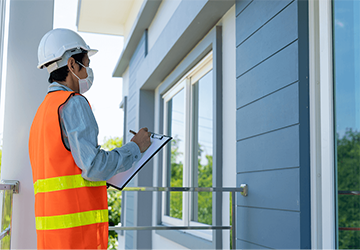
Top 10 Home Inspection Tips You Should Know
sannan
Finding your dream home will be an unforgettable adventure, but it also comes with many responsibilities to consider. A home inspection is one of the most critical steps in a homebuyer's roadmap. Now is the time to inspect the entire property with the help of experts to prevent any future concerns. Here are ten essential tips to help you navigate the home inspection process safely and comfortably, make an informed decision, and feel empowered when purchasing.

Tips to Remember When Conducting a Home Inspection
Here are some tips to remember during a home inspection:
Find a qualified inspector
The first step is to choose someone good at what they do. Don't hire Tom, Dick or Harry to knock on your door. Contact a certified examiner with the appropriate credentials to deepen their experience. Get recommendations from family, friends, or coworkers, or use a quick Google search to find the top inspectors in your area for a specific industry. Once you've narrowed your list, don't be afraid to ask them questions.
Be part of the inspection process.
This may sound like a no-brainer, but you'd be surprised how many people fail to attend home inspections. No matter what, you don't want to be one of them. You get to see it with your own eyes while the inspector goes through the entire inspection process and asks questions at any time, which is simply priceless. Additionally, your view of the area will expand, and you may learn how to navigate the area if you ever get to live there. So mark your calendar and ensure you're there from start to finish.
Pay attention to big things.
It is essential to walk through the home with the inspector, stay alert, and watch for vital warning signs. Causes like foundation cracks, water damage, or old electrical systems can be costly and could change your decision to buy a property. Look for structural or safety issues and discuss them with the inspector.
Don't worry about the small things (but don't ignore them either):
While these are all things you need to pay attention to, it doesn't mean you should ignore the little things. Minor imperfections, everyday wear, and signs of use accumulate over time. Spot warning signs like peeling paint, squeaking doors or leaking faucets. They may not be a deal breaker, but they can boost your confidence when negotiating prices.
Request full report
Once the inspection is complete, you will need a document detailing all the information in the report. This should also include issues discovered during the inspection, guidance for rectification, and further evaluation. Read the report thoroughly and ask the inspector for clarification if something is still unclear. This will help you understand the home's condition and decide whether to proceed with the purchase.
Check for signs of pests.
It's easy to remember pests when looking for a new location, but they deserve attention. Pests are a common problem in most facilities. During the inspection, check for signs of pest infestation. Look for droppings, gnawing marks, or visible pests. They may be the reason. Be sure to check areas such as basements, attics, and crawl spaces, as insects are most likely to reside there. If you notice any signs of pests, notify the inspector immediately.
Check all equipment and systems.
In addition to not assuming everything will be fine, you should check to see if the house meets your needs. During the inspection, take the time to check all equipment and systems. Turn on the stove, dishwasher, toilet and turn on the lights. Test heating and air conditioning systems to make sure they are working correctly. If something goes wrong or works poorly, please mark it as a comment and check with the reviewer.

Check the roof
The roof is the most essential part of the house, so it's important to take some time to inspect it. Look at the shingles on the roof. Do they look new, or are some missing or damaged? Also, check for water damage and areas where the roof may be sagging. Check your gutters for debris and ensure they are securely fastened to the house. If there are any problems with the roof during the inspection, let the inspector know.
Radon test
Radon is a colourless, odourless gas that can enter homes and cause serious health problems. It's the second leading cause of lung cancer in the United States, so it's essential to detect it during a home inspection. Inspectors often offer radon testing as part of their services. If not, you can purchase a homemade radon test kit from your local retailer.
Consider additional checks
The desired age and condition of the home will determine whether you choose a standard home inspection or have other additional inspections completed. These could include a termite inspection, a mould inspection, or a duct inspection. While these additional inspections incur additional costs initially, they can uncover potential problems that may not be detected during a typical home inspection.
Conclusion
Home inspection is an integral part of home buying and cannot be ignored. This article contains ten tips to help you conduct a detailed property inspection and decide whether to proceed with the purchase. Your safety and the long-term health of your family are our top priorities. Please feel free to ask if you need more information or additional testing.




